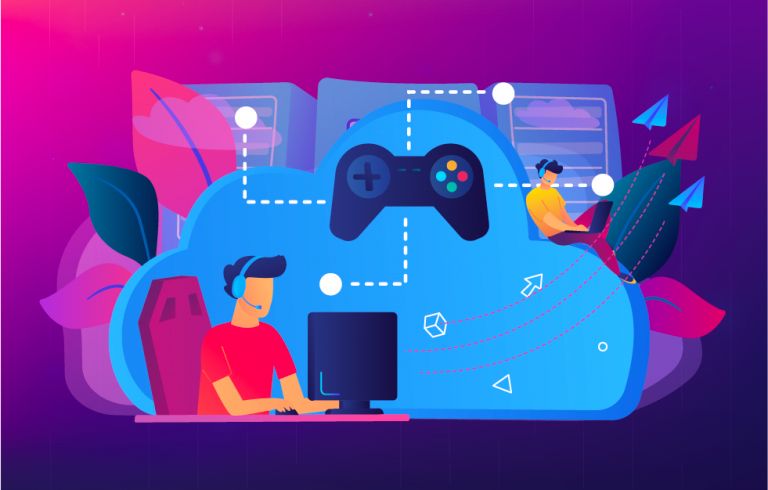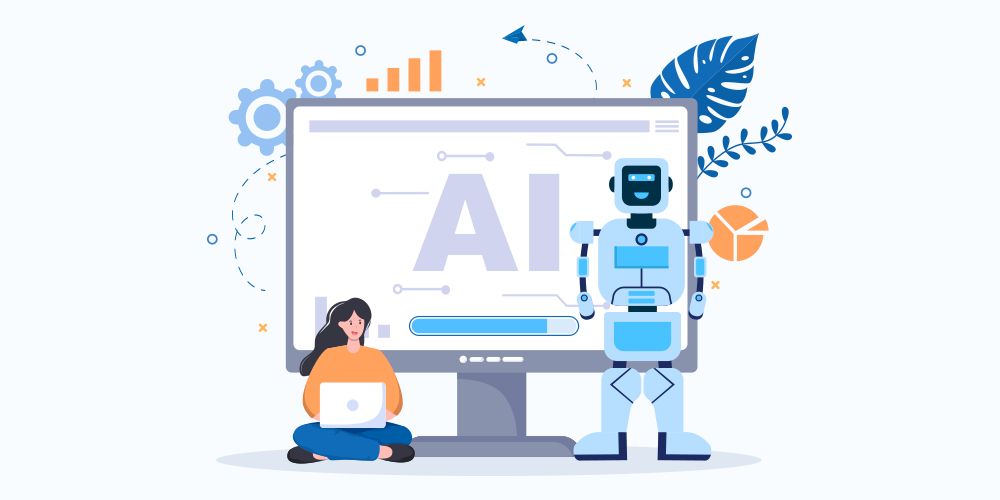Transforming the Field of Video Game Development With AI-Powered Research Tools
by Waseem Ahmad on Jun 26th, 2023

Introduction
Video games have come a long way since their inception, and with advancements in technology, the incorporation of artificial intelligence (AI) tools, such as ChatGPT, have revolutionized the gaming industry. AI's potential extends far beyond providing immersive experiences and captivating storylines, though, as AI has proven to be a valuable tool in the realm of video game development, enhancing many aspects of the field, including but not limited to, learning, brainstorming, and fact-finding. The possibilities are truly endless with artificial intelligence, and this article will be exploring exactly how AI-powered research tools can be used to transform the field of video game development, benefiting both players and developers.

Helping Game Developers Learn and Improve
In the dynamic and rapidly evolving field of video game development, continuous learning is paramount for developers to stay competitive and create innovative gaming experiences. Over the years, artificial intelligence has emerged as a valuable tool in supporting developers' learning processes by providing resources, guidance, and tools that enhance skill development and promote the acquisition of knowledge.
One of the many ways AI tools can be used to assist developers in learning is by employing these tools in the development of learning platforms designed explicitly for game developers. These platforms utilize AI algorithms to present a vast range of relevant learning materials, including tutorials, articles, videos, and online communities. By analyzing developers' skill levels, interests, and learning goals, AI algorithms can recommend specific courses, resources, or communities tailored to their needs. These personalized AI recommendations from learning platforms not only allow developers to learn new skills, but they also allow developers to navigate through the vast amount of learning material available, expediting their learning journey while simultaneously allowing them to stay up-to-date with the latest industry trends.
In addition to creating learning platforms, AI-powered code assistants can significantly improve developers' learning experiences by providing real-time suggestions, tips, and code examples as they create their next breathtaking projects. These assistants could effectively use AI algorithms to analyze code patterns, best practices, and identify common errors. By understanding the context of developers' code, AI code assistants can offer meaningful suggestions, helping developers improve their code quality, efficiency, and maintainability. Furthermore, AI code assistants can aid developers in learning new programming languages or frameworks by providing interactive tutorials and step-by-step guidance, allowing developers to strengthen their coding skills, deepen their understanding of programming concepts, and accelerate the learning process.
Interested in learning how to code but having trouble understanding the gibberish you’re reading online? Let AI break down difficult concepts for you by clicking here! Simply paste the concept you’re having trouble with and an age you want the AI to explain it to. Now, back to the article…
Writing clean and efficient code is one thing, but as many computer science students or coders know, a large part of coding is actually debugging, and AI is no slouch in this regard. Here, artificial intelligence tools can assist developers in debugging complex issues by analyzing error logs, crash reports, and code execution patterns. AI algorithms can detect patterns in bugs, identify potential root causes, and provide suggestions for resolving issues. By leveraging AI-assisted debugging, developers can learn from real-world scenarios, gain insights into common coding pitfalls, enhance their problem-solving skills, and understand and fix bugs efficiently. This AI-powered assistance not only helps developers overcome specific issues but also contributes to their continuous learning and improvement as they gain a deeper understanding of the intricacies of video game development.
While we’re on the topic of coding and debugging, are you having problems with your code, or are you simply trying to find a more efficient and clear way to write something? Simply click here and paste in a block of code to identify any bugs and receive feedback as to how to make your code more efficient and clear to understand!
Anyway, by harnessing the power of AI in these ways, video game developers can transform their learning experiences and gain new skills. AI's capabilities in personalized learning and automated assistance in coding and debugging will continue to empower developers to continuously learn, improve their craft, and remain at the forefront of the ever-evolving gaming industry.

Employing AI to Brainstorm Revolutionary Game Ideas
The creative process in video game development often requires brainstorming and generating innovative ideas for game mechanics, level design, and storylines. After all, many of the big titles today, such as Call of Duty, Valorant, and League of Legends, took years of planning, brainstorming, testing, and revising before they became the giants that they are today.
This is where AI can prove to be a valuable asset. By analyzing vast amounts of existing games, patterns, and player preferences, AI algorithms can assist game developers in the brainstorming phase. For instance, AI-powered systems can examine the mechanics and design elements of successful games, identify emerging trends, and suggest new possibilities. With the help of machine learning and data-driven insights, AI can provide valuable recommendations that stimulate creativity and help developers overcome creative blocks.
Furthermore, AI can also aid in the exploration of uncharted territories in game design. By generating variations of existing game mechanics or combining different elements from various genres, AI algorithms can propose unique and unexpected concepts that might have been overlooked during traditional brainstorming sessions. This can spark new ideas and directions, pushing the boundaries of game design, and could help developers build something that has never been seen before, allowing them to capture the curiosity of a large part of the market upon release and grow at rapid speeds.
Oftentimes, successful video games aren’t made by a single individual alone; they are made by a group of individuals or large companies that have hundreds of thousands of employees from around the globe. With so many developers working on these massive projects, collaborative brainstorming becomes a necessity that can be effectively facilitated through AI-powered platforms. These AI-powered collaboration platforms can seamlessly bring together game developers, designers, and AI systems to collectively explore ideas, exchange feedback, and build upon each other's suggestions.
Collaborative brainstorming involves not only generating ideas but also providing feedback and iterating on existing concepts. These platforms can also drive this feedback process by collecting and analyzing feedback from team members, external testers, and even players. As covered in last week’s article, through sentiment analysis and natural language processing, AI algorithms can extract valuable insights from feedback, identifying recurring themes, strengths, weaknesses, and areas for improvement. This data-driven feedback helps the development team refine and iterate on their ideas, ensuring that the final product aligns with their intended vision, and makes it easier for the development team to prioritize and select the most promising concepts for further development.
By leveraging the capabilities of AI for brainstorming, game developers can tap into a vast repository of knowledge and generate fresh ideas that may have been difficult to discover through traditional brainstorming methods alone. AI's ability to process and analyze large volumes of data, identify patterns, and offer innovative suggestions empowers developers to create games that are both imaginative and appealing to players. In essence, AI-powered brainstorming in video game development can revolutionize the creative process by offering data-driven insights, suggesting novel ideas, and facilitating collaboration among development teams. By harnessing the potential of AI in the brainstorming phase, game developers can unlock new avenues of innovation, leading to the creation of captivating and groundbreaking gaming experiences.

Using AI to Find and Verify Facts
After the brainstorming process has been successfully completed, developers must create a game that accurately represents various subjects, such as historical events, scientific concepts, or cultural references, which is crucial for creating immersive and educational video game experiences.
By using natural language processing (NLP) techniques, AI tools can identify and understand key concepts, historical facts, scientific principles, or cultural nuances associated with specific game elements. This allows game developers to incorporate accurate and up-to-date information into their games, providing players with a rich and informative experience. In historical or educational games, AI can assist in fact checking and validating historical events, dates, and details. Artificial intelligence tools can compare multiple sources and cross-reference information, which allows AI algorithms to identify inconsistencies or inaccuracies within game content.
On the other hand, AI-powered fact finding also extends to scientific concepts and principles. In games that involve scientific themes or mechanics, AI can assist developers in researching and understanding complex scientific topics. Developers could employ AI algorithms to analyze scientific literature, research papers, and databases, extracting relevant information and providing accurate summarizations and explanations. This ensures that the scientific aspects of the game are grounded in sound principles and reflect current scientific understanding, improving the quality and reliability of the actions completed within the game.
Similarly, cultural references and representations are another area where fact finding through AI is valuable. AI algorithms can analyze cultural texts, literature, and historical records to understand cultural nuances, traditions, and references. This helps developers create culturally sensitive and inclusive game content, avoiding stereotypes or misrepresentations, and ensuring that the game's cultural elements resonate with players and provide an authentic and respectful experience.
AI-powered fact finding in video game development facilitates the incorporation of accurate information, historical events, scientific principles, and cultural references. By leveraging AI algorithms to analyze vast amounts of data, developers can ensure the authenticity and educational value of game content. While the use of AI in fact finding saves developers time and effort in manual research, it's important to approach AI-powered fact finding with caution. AI algorithms can efficiently analyze data and extract information, but they may still encounter challenges in determining the accuracy and reliability of sources. Furthermore, AI algorithms can inadvertently reflect biases present in the data they analyze, leading to the propagation of inaccuracies or stereotypes. With proper validation mechanisms, consideration of biases, and regular updates to reflect up-to-date information, however, AI-driven fact finding can be a powerful tool for developers in creating informative, authentic, and engaging video game experiences, and it enables developers to create games that not only entertain but also educate, enriching players' understanding of various subjects and promoting curiosity and exploration.

Conclusion
AI-powered research tools have the potential to transform the field of video game development by enhancing learning experiences, stimulating creativity through brainstorming, and ensuring the accuracy and authenticity of game content. By taking advantage of the numerous capabilities of AI, developers can unlock new avenues of innovation, improve the quality of their games, and provide players with captivating, groundbreaking, and culturally inclusive gaming experiences. As the field of video game development and technology evolves, artificial intelligence will continue to be a tool that empowers developers to create the next generation of video games. In the meantime, feel free to stay up-to-date with the future applications of artificial intelligence tools across a variety of fields and use AI tools to transform your daily life.